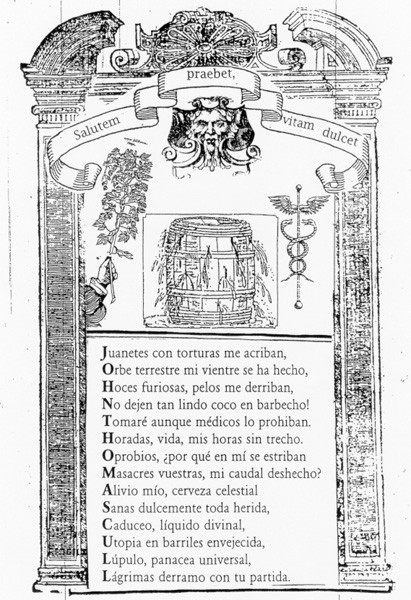John
Cull
Emblema
The
literature of emblems and devices combines word and image in a playful and
enigmatic manner in order to entertain, teach, and often, to communicate a
moral message. The form's invention is attributed to Andrea Alciato, a
jurisconsult from Milan whose best known work began as a simple collection of
translated Greek epigrams. His Selecta epigrammata graeca, published in 1529,
contains 30 epigrams translated from Greek to Latin, which would later make up
part of his Emblematum Liber. Alciato, as a distraction from his labors as a
jurist, continued to write epigrams that had an exemplary intention and were of
a markedly visual nature, introduced by lapidary inscriptions recalling the
Adagia of Erasmus. A collection of 105 of these compositions, which Alciato had
dedicated and given to his friend Conrado Peutinger, was published in Augsburg,
apparently without Alciatos's knowledge, by the printer Steiner in 1531, with
the title Emblematum Liber. It was this printer who decided to illustrate each
one of the compositions with a small engraving, thus giving rise to the
tripartite emblematic structure of lemma-pictura-epigram, which has ever since
been known as an emblem.
Devices
normally express the symbolic representation of a particular person, and
contain fewer and less elaborate motifs than the emblem. The device contains
several pictorial motifs in juxtaposition that present a visual enigma. The
motto, usually in Latin, helps the reader to decipher the puzzle depicted in
the image. Often, the meaning of both the motto and the visual element is made
explicit in a verse or prose composition beneath the picture.
The device
included here is one of my own design. The Rev. Edward J. Vodoklys, S. J.
(Classics) helped with the motto, which means "That which gives health sweetens
life." The pictorial motifs include a hand that holds a branch of hops, a
caduceus (the symbol of healing and the medical profession) and a barrel
leaking its contents. I leave it to the reader to examine the poem to
understand the meaning conveyed in my odd combination of the verbal and the
visual!
 |